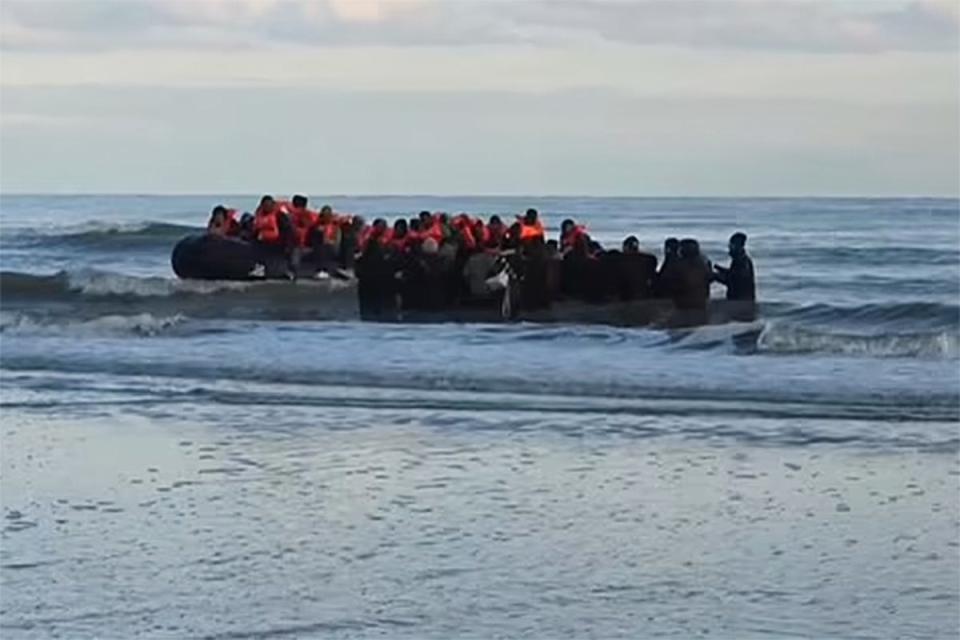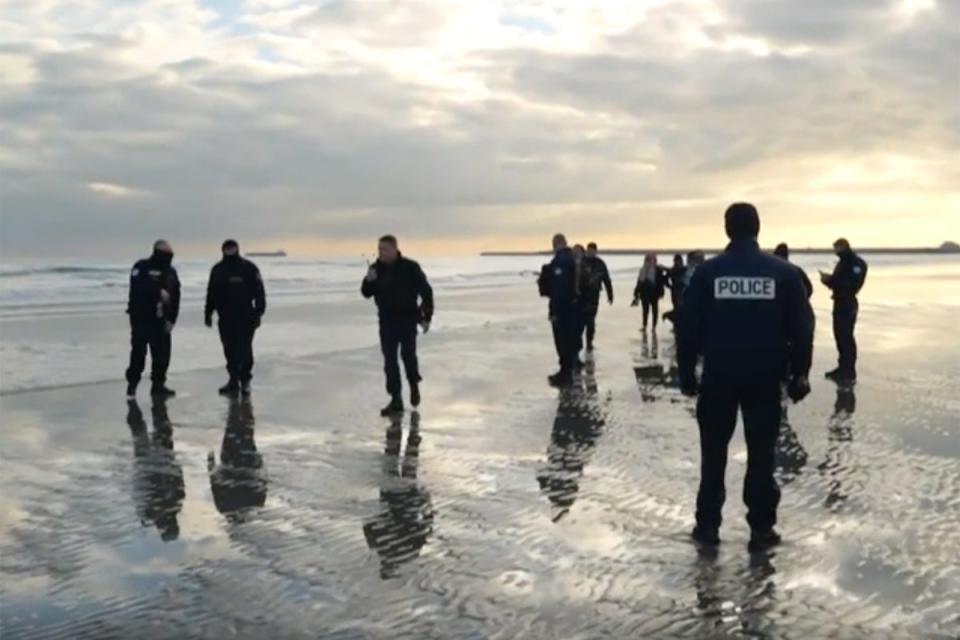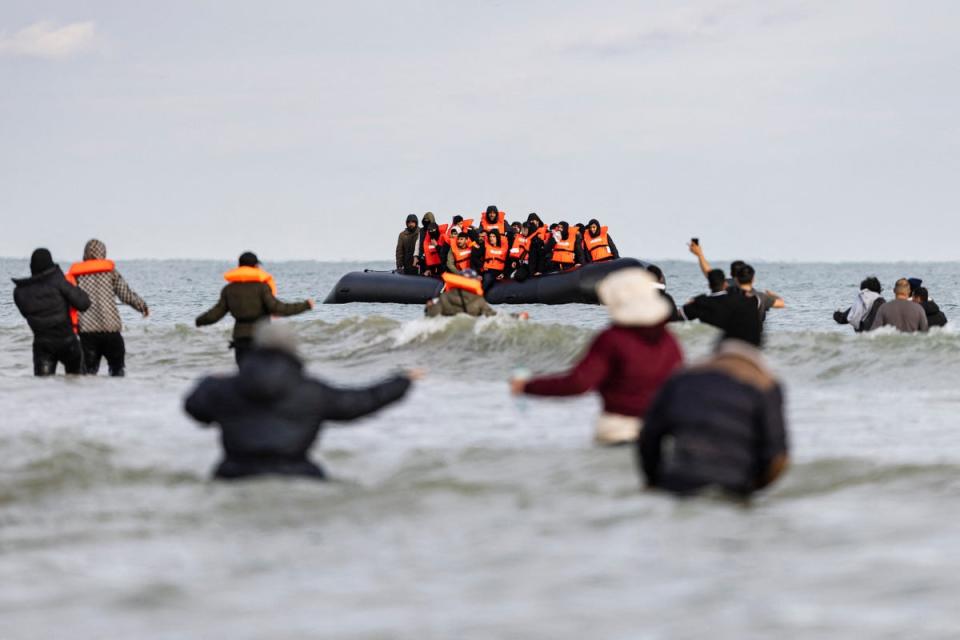‘I will never forgive myself’: Father recalls heartbreaking moment daughter died on small boat
A man whose seven-year-old daughter was among five people killed in an overcrowded small boat crossing the Channel has mourned her death and lamented that he “could not protect her”.
“I will never forgive myself. But the sea was the only choice I had,” said Ahmed Alhashimi, a 41-year-old man from Iraq, whose family of five was aboard the vessel, on what was their fourth attempt to cross over to Britain in two months.
But while Mr Alhashimi, his wife Ahmed Alhashimi, and two of their children – 13-year-old Rahaf and eight-year-old Hussam – were rescued from the boat, their youngest daughter Sara did not survive the journey.

The family had hidden overnight with fellow asylum-seekers in sand dunes on the coastline at Wimereux, south of Calais, before inflating their boat and being ordered by people-smugglers to run with it towards the sea before the police could intercept them.
But chaos ensued as a police tear gas canister ignited nearby, and smugglers threw fireworks to deter them – as what appeared to be another group of migrants also forced their way onto the boat.
The dinghy eventually set off with more than 110 people on board – despite the smugglers having promised them that only 40 people, mostly Iraqis, would be onboard and charging them a cost of €1,500 (£1,280) per adult, and €750 for each child, according to Mr Alhashimi.
While Sara had started off on her father’s shoulders, he had taken her down while helping his other daughter Rafah climb aboard the boat, before losing sight of Sara in the crush of bodies.
“That time was like death itself. We saw people dying. I saw how those men were behaving. They didn’t care whom they were stepping on – a child, or someone’s head, young or old. People started to suffocate,” Mr Alhashimi told BBC News.

His shouts for help are reported to have been audible from the beach as he lashed out at those around him to move to let him reach down and rescue his daughter.
“I just wanted him to move so I could pull my baby up,” he said of a young Sudanese man, who formed part of the group reported to have crowded aboard the vessel. But he alleges that the man first ignored him, and then threatened him.
“I’m a construction worker. I’m strong. But I couldn’t pull my leg out. No wonder my little girl couldn’t either. She was under our feet,” he added.
It was only once French authorities reached the seaborne boat and rescued a number of those onboard that Mr Alhashimi was able to reach his daughter’s body. “I saw her head in the corner of the boat. She was all blue. She was dead when we pulled her out. She wasn’t breathing,” he said.
The family have spent the past week in the care of French authorities, while they wait to bury Sara’s body, according to the BBC.
“I will never forgive myself. But the sea was the only choice I had. Everything that happened was against my will. I ran out of options. People blame me and say, ‘How could I risk my daughters?’ But I’ve spent 14 years in Europe and have been rejected,” said Mr Alhashimi.

The 41-year-old, who is from Basra, said he fled Iraq due to threats from militia groups. Sara was born in Belgium and spent most of her life in Sweden, where she and her siblings had lived with a relative for the past seven years – until Mr Alhashimi was recently informed they would be deported with him to Iraq.
“If I knew there was a 1 per cent chance that I could keep the kids in Belgium or France or Sweden or Finland I would keep them there,” said Mr Alhashimi.
“All I wanted was for my kids to go to school. I didn’t want any assistance. My wife and I can work. I just wanted to protect them and their childhoods and their dignity,” he said.
“If people were in my place, what would they do? Those who [criticise me] haven’t suffered what I’ve suffered. This was my last option,” he said.
Sara’s teacher in Sweden, Eva Jonsson, sent a video message to the BBC, and said that Sara had a lot of friends at the school. “In February we heard she would be deported and that it would happen quickly. We had two days’ notice,” she said.
Her class held a minute’s silence when they heard of her death last week, said Ms Jonsson, adding: “We have Sara’s picture in front of us still, and we will keep it there as long as the children want.”


